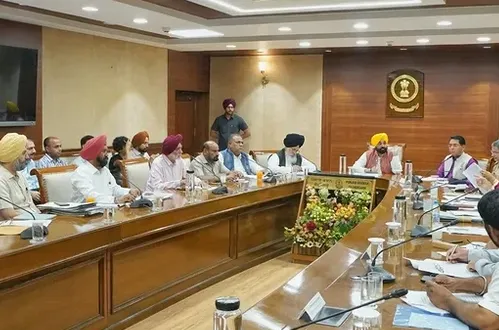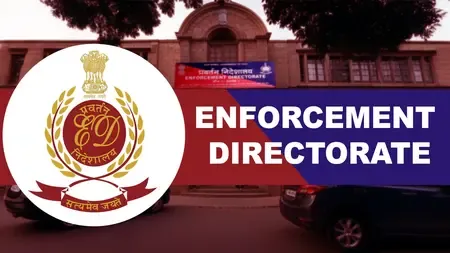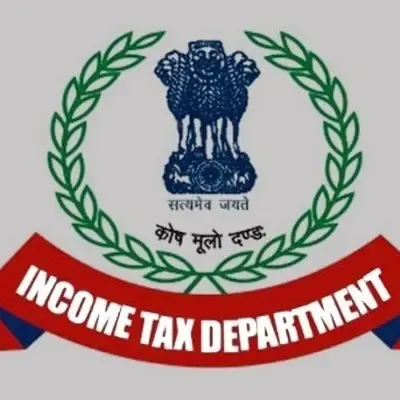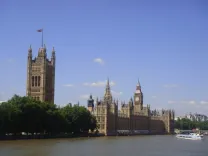Why Are Political Parties United Against the BBMB's Water Seizure?

Synopsis
Key Takeaways
- Political unity in Punjab against water appropriation.
- Chief Minister Mann's leadership in addressing water issues.
- The need for legal measures to protect state interests.
- Concerns over Haryana's water mismanagement.
- The importance of resource equity among states.
Chandigarh, May 2 (NationPress) - Initiated by Punjab Chief Minister Bhagwant Singh Mann, a remarkable display of solidarity emerged among all state political parties on Friday, denouncing the actions of the Bhakra Beas Management Board (BBMB) to “seize river waters”. The parties vowed to undertake all necessary actions to ensure water flows to Haryana and other states.
The leaders commended the Chief Minister for his humanitarian act of providing 4,000 cusecs of water daily to Haryana to address drinking water shortages. They collectively acknowledged Mann’s visionary leadership in uniting all political factions to protect the state's water resources.
They emphasized that it is crucial for the state government to pursue all available legal, political, and administrative avenues to protect the state's interests regarding river waters.
All parties urged the Chief Minister to diligently advocate for the rights of the state and its residents concerning this vital issue, assuring him of their full support and cooperation in this noble endeavor.
While praising the Chief Minister for his daily water provision to Haryana, they criticized the Haryana government and BBMB for their hostile, authoritarian, and anti-Punjab approach to appropriating Punjab's water.
The political factions also condemned the federal government's overreach in diminishing Punjab's influence by removing the Member (Power) in the BBMB, which had been appointed by the state.
They stated that with 60 percent of the BBMB's share, Punjab should possess veto power to prevent conspiracies against it from other stakeholders.
They pledged that all political groups, transcending their individual affiliations, would unite to advocate for the state's rights, leaving no effort unmade.
In the meantime, the Chief Minister expressed gratitude to all parties for their backing, noting that their solidarity has provided him with significant moral support.
He announced that a special session of the Vidhan Sabha would be convened on Monday to denounce the federal government and BBMB's overreach.
Mann stated that the crisis imposed on the state by the Centre reflects that “we are legally justified and morally fortified to combat it.”
He highlighted that Haryana had exhausted its water allocation from the BBMB by March, leading to multiple reminders from the state. Subsequently, Haryana requested Punjab to assist them in meeting their drinking water needs.
Out of humanitarian concern, the Punjab government decided to allocate 4,000 cusecs of water daily to Haryana starting April 6.
Although Haryana’s population is three crore, and estimates suggest that 1,700 cusecs would suffice for their needs, the Chief Minister noted that Haryana is requesting 2.5 times more than necessary.
Despite these facts, Punjab has continued to supply water, but Haryana recently claimed that this volume is insufficient and requested an additional 8,500 cusecs daily.
Mann asserted that the demand for this water is primarily for irrigation, indicating that Haryana has mismanaged its allocated share.
He remarked that Punjab is already facing agricultural water shortages due to receding groundwater levels.
The Chief Minister pointed out that water levels in the dams have hit record lows, with the levels at Pong Dam, Bhakra Dam, and Ranjit Sagar Dam sitting 32 feet, 12 feet, and 14 feet lower, respectively, compared to last year. He emphasized that every drop of water is precious for Punjab, and sharing it is out of the question.
Mann concluded by stating that both Haryana and the Centre are attempting to undermine Punjab, lamenting that the BBMB continues to pass new resolutions aimed at depriving Punjab of its rightful water share.










